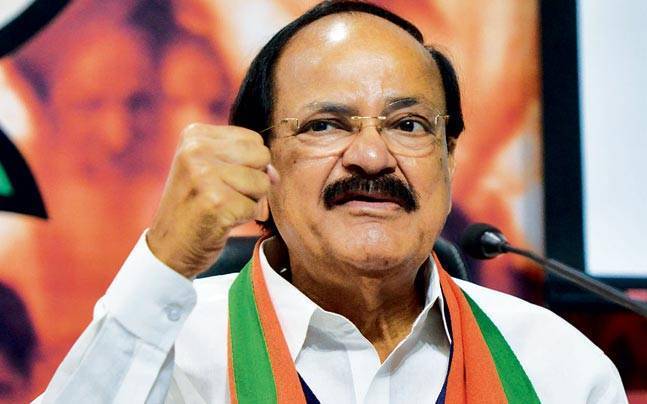On Wednesday, dates of winter session of Parliament were announced. The government said that the winter session of parliament will run from December 11 to January 8. Ahead of winter session, Rajya Sabha Chairman M Venkaiah Naidu will soon begin consultations with the government and the opposition leaders over the change in rules of the Rajya Sabha to check frequent disruption of proceedings.
In May, after a highly disruptive and noisy budget session, Rajya Sabha Chairman Venkaiah Naidu constituted a two-member committee to review Rules of Procedure and Conduct of Business. The Committee comprising V K Agnihotri, former Secretary General of Rajya Sabha, and S R Dhaleta, retired Joint Secretary and Legislative Counsel, Ministry of Law and Justice has submitted its report. The report will be studied by the Rules Committee of Rajya Sabha headed by Chairman Naidu.
Deccan Herald quoted a source in the Rajya Sabha Secretariat saying, “The Rajya Sabha Chairman has received the report and is going through it. He will be meeting leaders of all parties, including those in Opposition one by one.”
The Deccan Herald report also says that the committee is learnt to have recommended uniformity with respect to the rules for suspension so that the chairman does not require a vote of the House to suspend an erring member.
Repeated disruptions affect the functioning of the house and such acts are not good for the image of the largest democracy in the world. In the Budget session, more than 120 working hours out of 165 were lost. According to a report of PRS Legislative Research, the productivity of Rajya Sabha in Monsoon session was 66 per cent. In comparison to Rajya Sabha, the productivity of Lok Sabha was 110 per cent in Monsoon session. In terms of productivity, Monsoon session was much better than Budget session.
The latest idea of suspension of errant MPs would increase the productivity of the Upper House and also foster an environment of constructive and fruitful debate often undermined by frequent disruptions. Apart from this, deduction in salary of MPs disrupting the proceeding of the house can also be thought about. Jay Panda, an MP and ex-BJD leader offered to give up his salary for the disrupted hours in this winter session. In 2016, Congress MP and former Union minister Shashi Tharoor also suggested that those disrupting the house should be suspended automatically. He had said, “I do not think people have sent me to disrupt the House. However, the culture of Indian politics since independence, has sadly taken this shape.” He further added, “I have not changed my views on this and my party also know this. Debate and discussion should be held in Parliament and not disruption.” In 2017, Lok Sabha speaker Sumitra Mahajan suspended six Congress MPs- Gaurav Gogoi, K Suresh, Adhiranjan Chowdhary, Ranjeet Ranjan, Sushmita Dev and MK Raghavan – for five days for disrupting the Lok Sabha and this must be repeated in case the members continue disrupting the house.
Since Lok Sabha is already out of the hands of the opposition, the Rajya Sabha automatically becomes a place where they can have a say and this unfortunately results in sheer noise and disruption. Disruption of parliament has become a vicious circle, and the recent idea to suspend errant MPs if implemented would be a giant step towards putting an end to this vicious cycle. Five most noisy and disruptive members- Derek O’Brien, Anand Sharma, Renuka Chowdhury, Pramod Tiwari, Gulam Nabi Azad- along with some others stand to lose if the recommendation is tabled for considerations.
